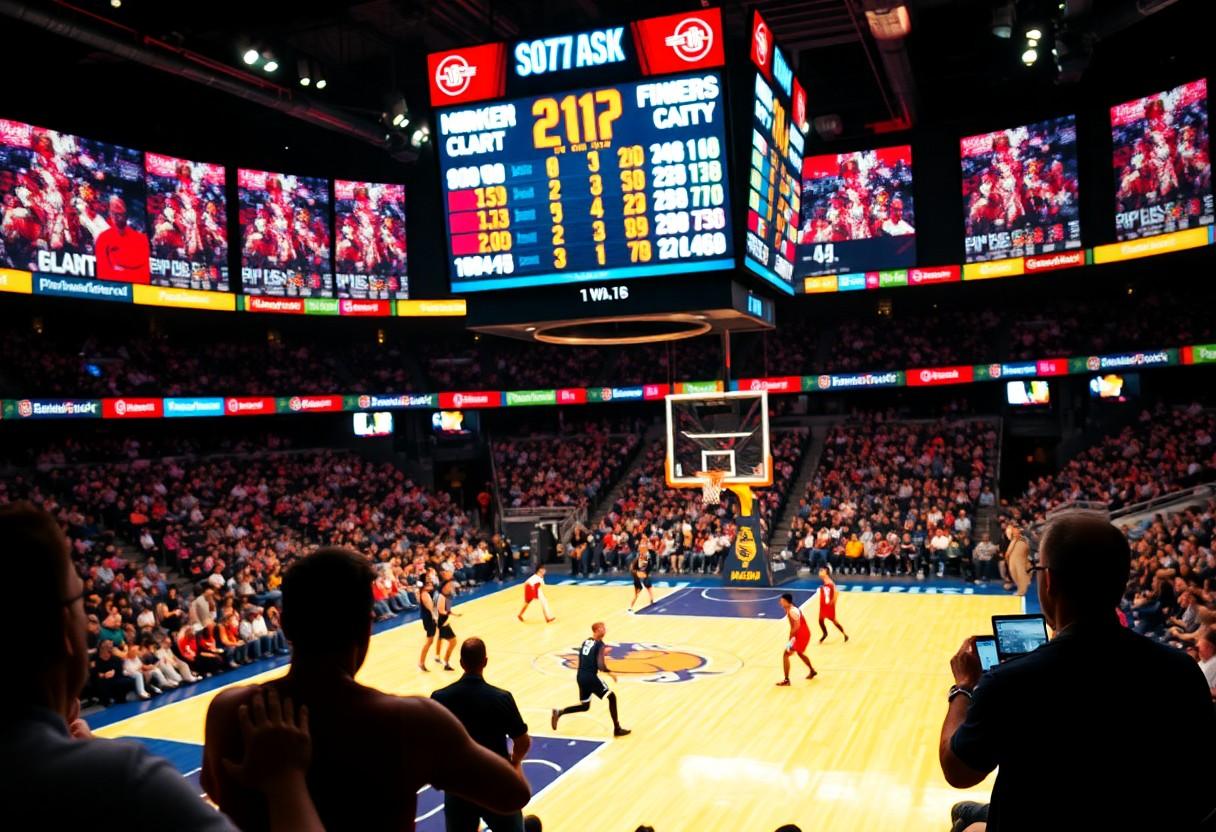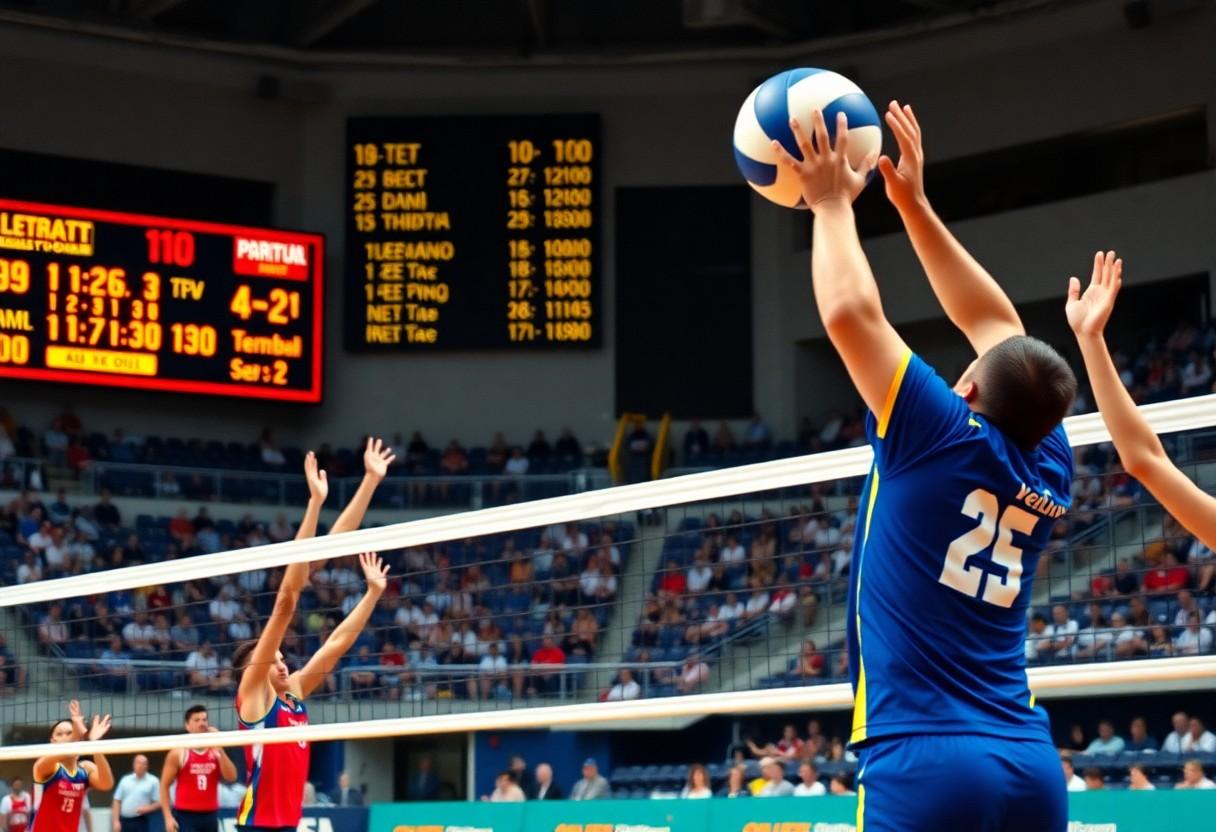With the fast-paced environment of live soccer betting, understanding the psychological factors at play is imperative for maintaining composure and making informed decisions. The pressure to react quickly can lead to impulsive choices that compromise strategy, but those who cultivate a sense of emotional regulation can enhance their betting outcomes. Recognizing the balance between excitement and risk is vital, as it can turn high-stakes moments into opportunities for strategic advantage. This post will explore techniques for staying calm and focused in this dynamic betting arena.
Understanding Live Soccer Betting
Live soccer betting, or in-game wagering, adds an exhilarating dimension to traditional betting by allowing participants to place bets as the match unfolds. This dynamic environment opens up numerous opportunities for bettors to analyze in real-time, adjusting their strategies based on live statistics, player performance, and momentum shifts. The rapid changes in the game create enticing prospects for maximizing potential returns.
The Appeal of In-Game Wagering
The allure of in-game wagering lies in its interactivity and engagement. Unlike pre-match betting, where decisions are made hours before the game starts, live betting enables fans to capitalize on the fluctuations of the game. The instant feedback from the match creates an emotional investment, increasing the thrill and urgency of placing bets. Enthusiasts are drawn to the potential for greater payouts as they navigate live odds.
Key Factors Influencing Betting Decisions
Multiple elements play a vital role in shaping bettors’ decisions during live soccer betting. Factors such as team form, player injuries, and current game momentum significantly influence the odds presented by bookmakers. Bettors often assess statistical data and emotional cues while waiting for the perfect moment to place their wagers, creating a blend of strategy and intuition. The dynamic nature of live sports betting means that conditions can turn rapidly, emphasizing the need for quick judgment.
- Team form
- Player injuries
- Current game momentum
- Statistical data
- Emotional cues
Understanding how these factors interact can significantly impact decision-making. For instance, a team’s recent performance can sway a bettor’s confidence when evaluating future outcomes. Real-time data analytics, like possession percentages and shot accuracy, provide crucial insights, while emotional reactions from fans or players can shift dynamics unpredictably. The integration of all these elements forms a comprehensive strategy for effective live betting.
- Real-time data analytics
- Fan impact
- Player performance shifts
- Quick judgment
- Comprehensive strategy
The Role of Emotions in Betting
Emotions significantly influence betting behavior, often leading to irrational decisions. Factors like excitement, anxiety, and frustration can cloud judgment, resulting in impulsive bets. For instance, bettors may chase losses after a poor performance, increasing their risk exposure. Understanding these emotional triggers helps bettors maintain a more analytical mindset, ultimately improving their decision-making processes during high-pressure situations.
Managing Emotional Responses
Effective management of emotional responses involves recognizing triggers and implementing strategies to remain composed. Techniques such as mindfulness, deep-breathing exercises, and regular reflection can help bettors regain control during intense moments. Establishing a clear betting strategy prior to the game provides a framework that minimizes emotional interference and guides decision-making.
The Impact of Stress on Decision-Making
Stress can distort perceptions and cloud judgment, leading to reactive rather than thoughtful decision-making processes. When bettors encounter high-stress situations, cognitive load increases, often resulting in hasty choices influenced by emotional volatility rather than rational analysis.
The effects of stress on decision-making can be profound, with studies suggesting that high-stress environments may lead to a decline in cognitive function. In live soccer betting, this can manifest as an overwhelming urgency to place bets, fostering choices based on fleeting emotions rather than sound analysis. For example, a bettor may quickly wager on a team, influenced by their current emotional state instead of objective odds assessments. Learning to manage stress through effective techniques—such as setting strict limits, taking breaks, and focusing on data rather than emotion—can help mitigate these negative impacts, promoting more rational and informed betting behavior.
Psychological Strategies for Betting Success
Success in live soccer betting hinges on psychological strategies that promote decision-making under pressure. Recognizing emotional triggers and leveraging them can differentiate a successful bettor from one who succumbs to the chaos of the game. Implementing structured approaches to risk assessment and self-management allows for a more rational perspective, enabling bettors to capitalize on opportunities rather than react impulsively to market fluctuations.
Developing a Calm Mindset
A calm mindset fosters better decision-making, allowing bettors to navigate the volatile nature of live betting. Practicing mindfulness techniques, such as deep breathing or visualization, can significantly reduce anxiety. Additionally, setting clear pre-game objectives can help maintain focus on long-term strategies instead of being swayed by short-term outcomes, ultimately leading to better betting decisions.
Techniques to Enhance Focus and Control
Enhancing focus and control involves actionable techniques like establishing a routine before each match, minimizing distractions, and using cognitive behavioral strategies to maintain composure. Creating a distraction-free environment allows for concentrated attention on gameplay and betting opportunities. Moreover, employing a betting journal to track decisions and outcomes can sharpen reflective practices, promoting continual improvement and emotional regulation.
Establishing a pre-betting routine can include activities like reviewing past games, adjusting betting strategies, and setting specific financial limits. For instance, many successful bettors utilize a time block system, dedicating focused periods solely to strategy analysis and betting, devoid of external influences. Alongside minimizing distractions, engaging in mental conditioning exercises, such as visualization of successful outcomes and practicing positive affirmations, encourages a disciplined mindset crucial for making thoughtful betting decisions. These strategies not only foster resilience but also enhance overall betting performance, allowing bettors to harness the adrenaline of live games without succumbing to rash reactions.
The Influence of Cognitive Biases
Cognitive biases significantly affect decision-making in live soccer betting, often leading to distorted perceptions of probability and value. Bettors may unconsciously favor familiar teams or recent performances, skewing their judgment. Emotional involvement with a team can diminish objectivity, causing riskier bets than calculated analyses would suggest. Recognizing these biases is important for maintaining a balanced approach.
Common Biases in Sports Betting
Among the common biases in sports betting, availability bias leads bettors to give more weight to recent outcomes, while confirmation bias encourages individuals to seek information that supports their pre-existing beliefs about a team or player. Additionally, the overconfidence bias can drive bettors to underestimate the risks involved and assume they have a better understanding than they truly do.
Strategies to Mitigate Bias Effects
Implementing data-driven strategies can counteract cognitive biases in sports betting. Keeping a detailed record of bets, analyzing statistical trends, and setting strict limits on emotional wagers are effective ways to cultivate a more rational betting mindset. Utilizing advanced analytics tools instead of relying solely on gut feelings can further enhance decision-making, enabling bettors to focus on objective metrics rather than subjective judgments.
Establishing a structured approach can significantly minimize the impact of cognitive biases. Adopting a pre-defined strategy that includes setting objectives and bankroll management helps in maintaining discipline. Regularly reviewing past betting decisions allows for reflection on betting patterns and biases encountered. In addition, being aware of emotional triggers can help bettors resist impulsive decisions, fostering a more analytical perspective on each live betting scenario.
The Importance of Bankroll Management
Effective bankroll management separates successful bettors from those who chase losses. Allocating a specific amount for betting, known as a bankroll, helps to mitigate risks and enables punters to withstand losing streaks without emotional decision-making. Setting a clear percentage of the bankroll for each bet ensures that any single wager won’t severely impact overall finances, promoting a more rational and calculated approach to live betting.
Setting Limits to Maintain Composure
Establishing personal limits aids in maintaining composure during live betting. By defining a maximum loss threshold or a profit goal, bettors can detach emotionally from the game, reducing impulsive decisions that stem from frustration or excitement. These limits foster disciplined gameplay and protect against betting more than one can afford to lose, ensuring long-term engagement rather than short-lived victories.
Adapting Strategies Based on Game Dynamics
Game dynamics constantly shift, and the ability to adapt betting strategies in real-time can significantly affect outcomes. Observing key moments like injuries or momentum changes allows bettors to adjust their wagers according to live match conditions. This responsiveness can capitalize on favorable odds or mitigate losses when circumstances shift unexpectedly, making it imperative for successful live betting.
Analyzing the flow of the game is paramount for making informed adjustments. For instance, if a key player is injured or one team exhibits a sudden surge in performance, altering bet types or amounts in response can yield favorable opportunities. A bettor might see that a trailing team is dominating possession, signaling a potential scoring opportunity, prompting a change in strategy. Keeping an eye on these dynamics ensures that live betting remains reactive and strategized, aligning with the unpredictable nature of the sport.
Educating Yourself on Soccer Dynamics
Understanding the dynamics of soccer is necessary for successful live betting. Familiarizing yourself with aspects such as team formations, player statistics, and injury reports can provide significant insights into potential outcomes. Each match is influenced by many variables, and knowing how teams perform under different conditions allows bettors to make informed decisions. Staying updated on recent developments within leagues helps predict how these factors may sway gameplay and, ultimately, betting results.
Analyzing Team Performance and Trends
Evaluating a team’s historical performance alongside recent trends offers a solid foundation for placing live bets. Look for patterns such as winning streaks or struggling defensive capabilities in past matches. For example, a team that has consistently scored late goals in previous games may indicate a high potential for scoring during the last moments of a match. Statistical analysis of both home and away games further enhances understanding, allowing bettors to capitalize on strengths and weaknesses.
Understanding Game Flow for Better Betting Decisions
Game flow encompasses the rhythm and pace of play, significantly impacting betting opportunities. Observing how teams respond to specific situations, such as a goal scored early or a player sent off, can provide insight into shifting dynamics. Recognizing these patterns in real-time enhances the ability to predict how teams might adapt their strategies, allowing bettors to seize advantageous moments before conventional odds adjust.
For instance, in a match where one team is trailing, they may adopt a more aggressive approach, leading to increased scoring chances and corner kicks. This shift in tactics can create valuable betting opportunities, such as wagering on total goals or specific player outcomes. Live betting markets often lag behind the actual game progression, and understanding game flow enables bettors to capitalize on these inefficiencies, ultimately improving their chances of success.
Conclusion
Considering all points, understanding the psychology behind live soccer betting is imperative for maintaining composure in high-pressure situations. The ability to manage emotions, assess risk, and make informed decisions rapidly can greatly enhance betting outcomes. Strategies such as mindfulness and systematic analysis can help bettors stay focused, reducing impulsive reactions to game dynamics. Ultimately, a disciplined approach, combined with a solid grasp of the game’s psychological facets, empowers bettors to navigate the complexities of live betting with greater confidence and success.
FAQ
Q: What psychological factors should bettors consider when participating in live soccer betting?
A: Bettors should be aware of their emotional responses and cognitive biases which can impact decision-making. Understanding how stress, excitement, and anxiety can influence judgment is important. Awareness of biases like favoritism or loss aversion can help maintain rationality during betting.
Q: How can bettors manage their emotions while engaging in live soccer betting?
A: Employing techniques such as deep breathing, taking breaks, and setting limits can help maintain composure. Additionally, creating a pre-defined betting strategy can prevent impulsive decisions driven by heightened emotions during live events.
Q: What strategies can bettors use to improve their focus during high-pressure situations?
A: Staying focused can be enhanced by minimizing distractions and establishing a structured environment. Keeping track of statistics and maintaining a clear mindset about win/loss ratios can aid in making objective decisions rather than emotional ones during intense moments.




